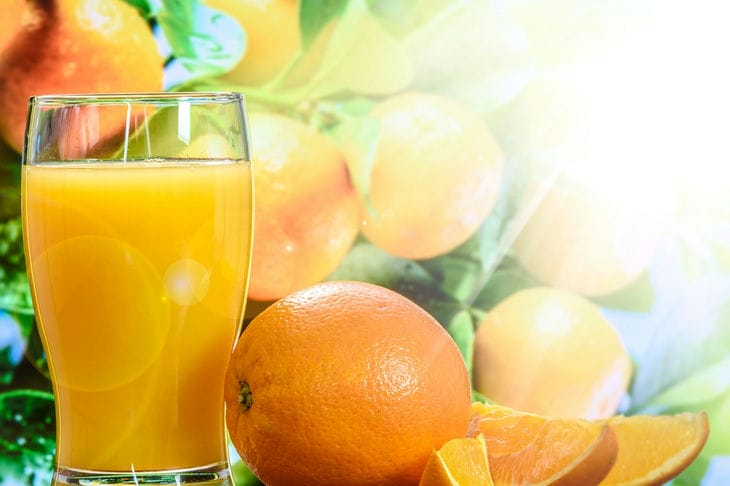In the modern world, a wide variety of different food products has appeared. However, not all products are healthy to eat.
There are ten foods that are harmful to your health if consumed regularly.
Vegetable oil
Unrefined vegetable oil is obtained through the process of pressing from various oil plants.

Compared to most refined oils, it is not deacidified, bleached or deodorized. High levels of peroxides cause accelerated aging of humans, and trans fatty acids do not promote cardiovascular health.
Neutralization of acidity can remove easily oxidized free fatty acids, and bleaching can remove light-sensitive pigments such as chlorophyll. Deodorization can remove substances that cause oily odor, mainly by neutralizing oil oxidation products.
Removing these substances can make the oil more stable, which not only helps extend its shelf life but also reduces the production of peroxides, which accelerate human aging, and trans fatty acids, which contribute to cardiovascular disease, which are formed during cooking and heating.
In addition, these refining processes can also remove carcinogens such as aflatoxins, polycyclic aromatic hydrocarbons and trans fatty acids, which are harmful to human health. Among common vegetable oils, peanut oil is particularly susceptible to aflatoxin contamination. Therefore, oil pressed from oil plants, especially peanut oil, has a significant effect on increasing aflatoxin levels in the human body.
Honey water
Honey is 75.6% sugar, 22% water, 1.9% fat, and the remaining 0.5% are other ingredients that may be beneficial to health. Many people still drink honey with water, and the ingredients that enter the body each time are less beneficial to health. Therefore, it is not recommended to drink honey water for improving beauty and health.
In addition, the sugar contained in honey is mainly composed of fructose and glucose. Fructose can be metabolized into uric acid and converted into fat in liver cells.
Therefore, consuming too much fructose increases the risk of gout and fatty liver disease. Blood sugar is glucose in the blood. Honey contains a large amount of glucose. Therefore, drinking honey water also significantly increases blood sugar levels.
Some people can improve their constipation problems by drinking honey water. However, this only works for a very small number of people who are fructose intolerant.
Honey water will be absorbed into the gastrointestinal tract, and then the water content of the stool will be increased, and the problem of constipation will be solved. However, when fructose enters the large intestine, it will also be fermented by microorganisms to form gas. For this reason, it will also cause bloating and even abdominal pain.
Therefore, even people with fructose intolerance and constipation are not advised to drink honey water to relieve symptoms.
Water with added brown sugar
The main component of brown sugar is sucrose, which quickly increases blood sugar levels. Many people think that such water, like human blood, is red and must be very blood-enriching. However, the fact is different.
The red color of brown sugar is due to the Maillard reaction between sugar and amino acids during cooking. The higher the cooking temperature and the longer the cooking time, the more intense the Maillard reaction will be and the more melanoid pigments will be produced. Brown sugar will have a darker color.
It is also not safe to drink brown sugar water to replenish iron stores. This is because, although the iron content of brown sugar is equivalent to that of lean beef, the iron in brown sugar is ferric iron, which is not easily absorbed by the body and the absorption rate is very slow.
In addition, consuming brown sugar dissolved in water does not provide the required iron levels as after eating beef.
Some people feel better during dysmenorrhea after drinking water with brown sugar. This may be because the temperature of the hot water helps dilate blood vessels, and drinking plain water can also have the same effect.
Juice
When fruits are turned into juice, their cell walls are broken down and the fructose, glucose and sucrose contained within the cells are released. After drinking the juice, blood sugar levels rise significantly.
In addition, the juicing process occurs in contact with air, and the temperature of the juicing equipment will rise, which increases the loss of vitamin C.
Turning fruits into juice will also reduce the amount of dietary fiber that is extremely beneficial for health. Therefore, it is necessary to drink less freshly squeezed juice.
Plain yogurt
Yogurt is a fermented milk product. After fermentation, lactose, protein and fat are partially broken down. Therefore, yogurt is easier to digest and is more suitable for people with lactose intolerance. In addition, the bacteria used for fermentation are beneficial bacteria that are good for gut health.
However, all these benefits can be offset by the sugar content. The sugar content of regular yogurt ranges from 7% to 9%.
If you drink one cup a day, that is about 130 grams, then your sugar consumption will be from 9 to 12 grams.
Nutritionists recommend limiting your daily intake of added sugar to 25 grams, or half the amount in a standard cup of yogurt.
Pork belly
Steamed pork with rice noodles, roasted pork, braised pork with preserved vegetables are all pork belly delicacies that are really delicious.
Unfortunately, pork belly is high in saturated fatty acids, and excessive consumption of saturated fatty acids is not conducive to cardiovascular health.
Therefore, it is recommended to control the daily consumption of saturated fatty acids within 7% of the total food intake. However, for women this dose should not exceed 14 grams per day.
Two large pieces of stewed pork are 100 grams. The content of saturated fatty acids is only 11 grams. Therefore, pork belly can be eaten from time to time.
Coconut oil
Some people say that coconut oil can help you lose weight. The mechanism may be that it is rich in medium-chain fatty acids.
Compared to long-chain fatty acids, medium-chain fatty acids can form ketone bodies during metabolism, which may increase feelings of fullness.
In addition, medium chain fatty acids have a low molecular weight and after digestion will be directly transported to the liver to quickly generate energy for the body to use.
Unfortunately, the medium-chain fatty acids found in coconut oil are mostly lauric acid, and its primary metabolic pathway in the body is the accumulation of synthetic fat. Coconut oil, like other oils, produces 9 kcal of energy per gram. Therefore, you should not expect to lose weight by consuming coconut oil.
In addition, the content of saturated fatty acids in this type of oil is higher than in lard, butter and palm oil.
Hot food
The International Agency for Research on Cancer has clearly stated that hot drinks above 65°C can damage the lining of the esophagus and increase the risk of esophageal cancer. Therefore, food, soup and tea should be cooled before drinking.
Porridge
The main ingredients of porridge are starch and water, which are particularly easy to raise blood sugar levels.
If you are hungry, you can eat multigrain porridge, and you need to cook it until it becomes too soft.
Spicy and salty snacks
The fat content of spicy snacks is 25 grams per 100 grams of product. The net weight of 1 pack is 100 grams, the fat content is 26.5 grams.
The recommended daily intake of vegetable oil is no more than 25-30 grams. This package of spicy snacks can easily be eaten in less than five minutes. However, the consumption is the recommended amount of vegetable oil per day.
The sodium content of such snacks is 2740 mg/100 g, and the sodium content in 1 pack is 7.3 g in terms of salt.
Daily salt consumption should not exceed 5 grams. That is, if you eat a pack of spicy snacks, it will be equal to almost a day and a half of salt consumption.
Earlier we reported on the help provided to a girl who was bitten by a monkey .









